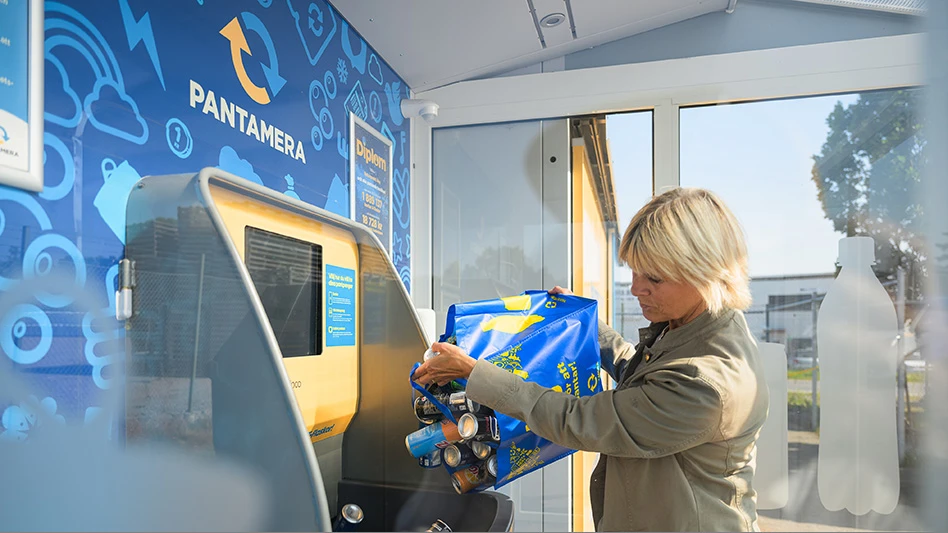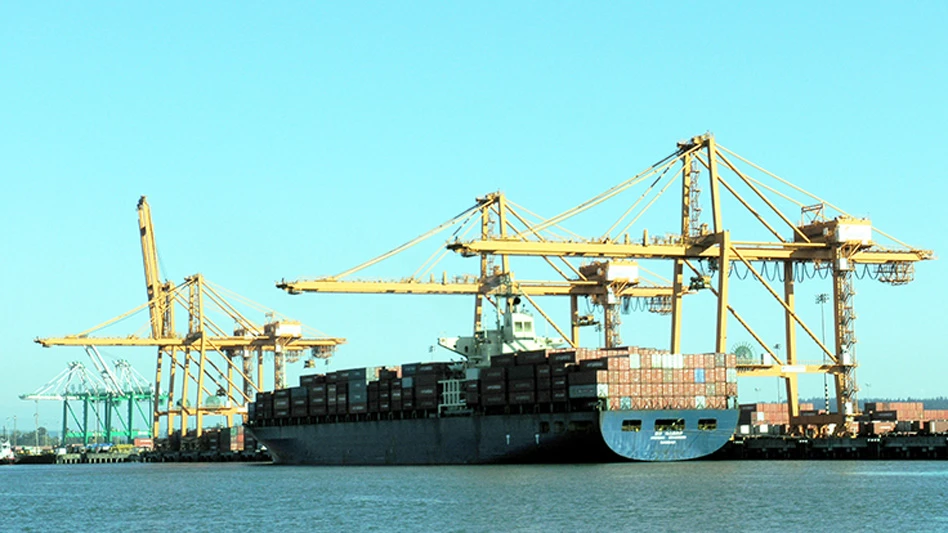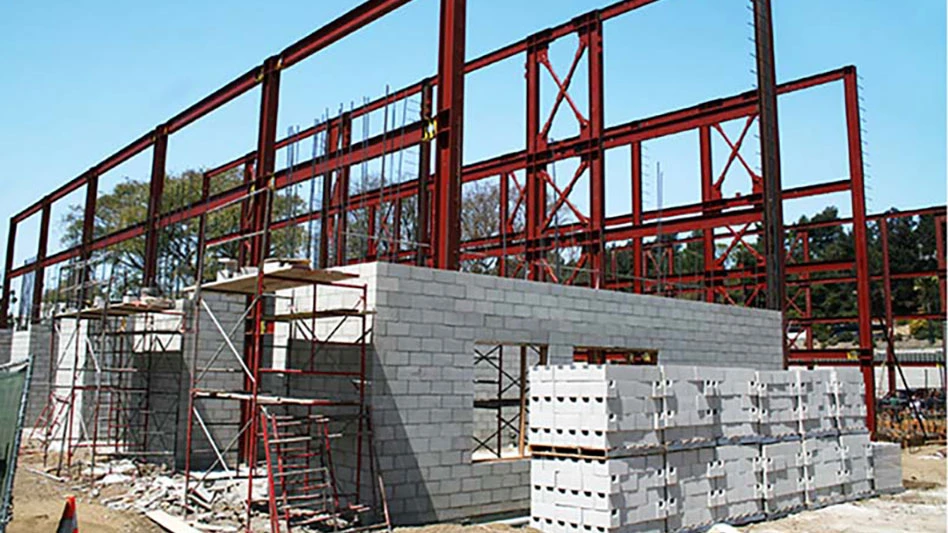 The Bureau of International Recycling (BIR) brings its 2014 World Recycling Convention & Exhibition to the States this year. The trade organization has selected Miami as an ideal locale to tap into opportunities in the emerging Latin American market by attracting recycling industry decision-makers from this continent. The event is set for June 1-4, 2014.
The Bureau of International Recycling (BIR) brings its 2014 World Recycling Convention & Exhibition to the States this year. The trade organization has selected Miami as an ideal locale to tap into opportunities in the emerging Latin American market by attracting recycling industry decision-makers from this continent. The event is set for June 1-4, 2014.
The convention takes place at the opulent Fontainebleau Hotel, an ocean-front resort on Miami’s renowned South Beach. The last time the Brussels-based organization brought its spring convention to the U.S. was in 2000, when BIR members and guests gathered in San Francisco.
The event kicks off Sunday, June 1, with a series of special committee and advisory council meetings, and continues through Wednesday, with its traditional series of panel presentations focusing on secondary commodities markets and international trade.
Focus on growth
Björn Grufman, president of the BIR, says holding the event in Miami is intended to spotlight the region’s growing recycling sector, to the benefit of recyclers both within and outside of Latin America.
“We are trying to promote BIR within Latin and South America, and we hope that we can attract people from these areas to come to the convention,” Grufman says.
He adds that the event also should help BIR members from around the world begin to do business with organizations based in Latin America.
“The membership of the BIR will be interested to get in contact with South American or Latin American potential members to increase their trade, so I think it’s a great opportunity,” he says.
|
Leading the charge Alexandre Delacoux, director general of the Bureau of International Recycling (BIR), Brussels, officially took the reigns of this position in September 2013, when long-time director general Francis Veys retired. Veys led the BIR for nearly 40 years. Delacoux points out that the introduction to his role took the form of a two-year transition period, during which time he worked with directly with Veys. “I started in the fall of 2012 to work part time for BIR, during which time I interviewed all the leaders of BIR,” Delacoux says. These discussions and his training led Delacoux to develop a strategic plan outlining his priorities for the organization, which he presented to the BIR’s advisory council in May 2013 at the World Recycling Convention in Shanghai. Delacoux says the long transition period was valuable for him, since his prior experience as the secretary general of other associations—most recently in the biopharmaceutical industry—was a bit different than the recycling industry. Delacoux also has worked as a consultant and lobbyist in European Union affairs. Among his priorities for the BIR in the years to come, Delacoux says, is bringing more visibility to the group as the foremost organization representing the recycling industry on a global scale. That means attracting new members. Another priority is helping members see beyond the curve when it comes to qualifications or legislative changes, he says. “The purpose of BIR is always the business case,” Delacoux says. “We are doing all this to enable our members to ameliorate their businesses,” he adds. |
Similarly, the BIR’s recently appointed Director General Alexandre Delacoux says the association continues to be interested in engaging professionals and encouraging business, particularly in emerging markets.
“The BIR conventions are the meeting places for the business people in the recycling industry and all the commodities that we represent,” says Delacoux. “As such, they constitute a very visible place for all those who need to buy or sell any of these commodities.”
Delacoux says the organization’s emphasis on providing value through its events continues to increase.
“We need to make conventions evolve to make them even more focused on offering business opportunities,” he says. “That’s the key to success of BIR conventions.”
Attracting new members to the BIR is an ongoing objective of each convention, as is facilitating business, Delacoux says. “We are interested in organizing conferences where business is likely to develop,” he says. “We go where business is, and Miami is the right spot between the U.S. and Latin America.”
Delacoux says he expects that 700 to 1,000 individuals will attend this year’s event. The spring convention of BIR delegates and guests, in contrast to BIR’s Autumn Round-Table Sessions traditionally held in late October, is historically the larger of the two semiannual gatherings because it is where and when BIR’s annual general assembly meeting takes place. However, Delacoux notes that in recent years these two events have become similar in scale and scope. Both offer the dual framework of market spotlight sessions combined with a venue for making business connections. “It is in these two aspects that the autumn convention starts to resemble the spring convention,” he says.
The convention’s plenary sessions, focusing on markets for various secondary commodities and international trade, commence Monday, June 2, with the Textiles Division and continue through Wednesday, June 4, concluding with the Plastics Division session. The other well-attended sessions that are part of the plenary session series include Tyres, E-Scrap, Non-Ferrous Metals, International Trade Council, Stainless Steel & Special Alloys, International Environment Council, Paper, Ferrous and the Shredder Committee.
As is customary at BIR events, at these panel sessions, attendees receive current market updates and business forecasts for various secondary commodities that recyclers deal in as well as regional market outlooks. In addition to these presentations, says Delacoux, the convention also features a range of speakers, including the keynote presenter—not yet made public as of press time—who share their perspectives and insights into the markets.
New for 2014
The BIR’s Textiles Division has organized a supplemental program, new for 2014. The Textile Summit is presented on behalf of the division in partnership with the Secondary Materials and Recycled Textiles Association (SMART) and the Council for Textile Recycling (CTR), its U.S.-based partners.
The summit is scheduled for June 2 and runs parallel to the World Recycling Convention’s commodities sessions and immediately following the BIR’s Textile Division meeting. Delacoux says the summit offers panel discussions focusing on the textile recycling business.
“It’s the first time that we are voluntarily pushing the textile division into taking up a full day,” says Delacoux. “It should be quite interesting for anyone looking at the recycled textile industry.”
The convention’s Keynote Session speaker is set to appear before lunch Tuesday at 11:30 a.m. Later, at 2 p.m., the BIR plans to hold its annual General Assembly meeting, during which the organization presents its budget and financial report, welcomes new members and votes for new officer and board positions.
Delacoux says he also plans to say a few words about what he has focused on since he last addressed the members in Shanghai at the 2013 World Recycling Convention. He says he likely will discuss the priorities he has established and how the BIR is responding and adapting to business trends on a global scale.
In hinting at the focus of his presentation, Delacoux says he may discuss how the organization must respond to legislative developments at the United Nations level—notably pertaining to Basel Convention policies—and also at the OECD (Organisation for Economic Co-operation and Development) level as well as in specific regions. Delacoux says he also plans to discuss many of the processes and operations of the BIR Secretariat, such as the efficiency of its operations and services.
For those attendees and guests who may not attend all of the plenary sessions, the organization has arranged a selection of sightseeing tours for each day of the conference. These can be booked through the conference organizer, Experient.
When it comes to providing networking opportunities to forge business connections, one way the BIR has accomplished this is through the convention’s exhibition area. Here, member companies, such as equipment suppliers and service providers, can reserve exhibition stands or hospitality booths at the event. Delacoux says the exhibition area is likely to include a modest number of stands, around 10 or so.
Promoting trade
Likely to be one of the big topics for discussion this year at the International Trade Council session and other plenary meetings is the growing trend toward increased trade restrictions threatening to hamper secondary commodities markets on a global scale as well as how BIR is working to uphold its position on the topic.
Sponsored Content
Labor that Works
With 25 years of experience, Leadpoint delivers cost-effective workforce solutions tailored to your needs. We handle the recruiting, hiring, training, and onboarding to deliver stable, productive, and safety-focused teams. Our commitment to safety and quality ensures peace of mind with a reliable workforce that helps you achieve your goals.
Sponsored Content
Labor that Works
With 25 years of experience, Leadpoint delivers cost-effective workforce solutions tailored to your needs. We handle the recruiting, hiring, training, and onboarding to deliver stable, productive, and safety-focused teams. Our commitment to safety and quality ensures peace of mind with a reliable workforce that helps you achieve your goals.
Sponsored Content
Labor that Works
With 25 years of experience, Leadpoint delivers cost-effective workforce solutions tailored to your needs. We handle the recruiting, hiring, training, and onboarding to deliver stable, productive, and safety-focused teams. Our commitment to safety and quality ensures peace of mind with a reliable workforce that helps you achieve your goals.
Sponsored Content
Labor that Works
With 25 years of experience, Leadpoint delivers cost-effective workforce solutions tailored to your needs. We handle the recruiting, hiring, training, and onboarding to deliver stable, productive, and safety-focused teams. Our commitment to safety and quality ensures peace of mind with a reliable workforce that helps you achieve your goals.
Sponsored Content
Labor that Works
With 25 years of experience, Leadpoint delivers cost-effective workforce solutions tailored to your needs. We handle the recruiting, hiring, training, and onboarding to deliver stable, productive, and safety-focused teams. Our commitment to safety and quality ensures peace of mind with a reliable workforce that helps you achieve your goals.
Sponsored Content
Labor that Works
With 25 years of experience, Leadpoint delivers cost-effective workforce solutions tailored to your needs. We handle the recruiting, hiring, training, and onboarding to deliver stable, productive, and safety-focused teams. Our commitment to safety and quality ensures peace of mind with a reliable workforce that helps you achieve your goals.
Sponsored Content
Labor that Works
With 25 years of experience, Leadpoint delivers cost-effective workforce solutions tailored to your needs. We handle the recruiting, hiring, training, and onboarding to deliver stable, productive, and safety-focused teams. Our commitment to safety and quality ensures peace of mind with a reliable workforce that helps you achieve your goals.
“Free trade is the condition for this business to flourish so that it can serve domestic necessities and then the export markets,” says Delacoux, reiterating the organization’s stance on the topic.
Delacoux conjectures that the slumping economic situation has led to certain protectionist policies at the national level, which historically have resulted in the closing or tightening of borders. But, the BIR is fighting against these policies with the help of its various member groups, he says.
“What we are doing is continuing to be promoters of free and fair trade,” says Delacoux. “We have an important role to play internationally in providing business relations, in providing the international view of the necessity of free trade and the right legislative framework.”
Delacoux says the association works with its 40-plus federations that represent the association and help facilitate a level playing field for free and open trade. It is BIR’s view, he says, that recyclers should pursue domestic markets for the trade of scrap materials, provided that prices are driven by the market. But, the BIR opposes political decisions that unfairly influence markets by restricting international trade.
“That’s what we are standing up against,” says Delacoux. “If you close your borders on all technology, you are not going to be able to sustain the competition at the international level.”
Fiesta latina
What is arguably one of the most anticipated offerings at each BIR convention is the traditional Welcome Evening event, an elegant cocktail party and gathering held on the opening night of the conference.
 In recent years this Welcome Evening typically has taken place at a different venue than the host hotel; however, at the 2014 World Recycling Convention, the party will take place on site at the Fontainebleau Gardens and Poolscape. Registered delegates, guests and spouses are invited to the BIR’s “Fiesta Latina,” featuring exceptional food and colorful entertainment, according to the association.
In recent years this Welcome Evening typically has taken place at a different venue than the host hotel; however, at the 2014 World Recycling Convention, the party will take place on site at the Fontainebleau Gardens and Poolscape. Registered delegates, guests and spouses are invited to the BIR’s “Fiesta Latina,” featuring exceptional food and colorful entertainment, according to the association.
Delacoux says that while the evening’s entertainment remains a surprise until the last moment, it likely will deliver a decidedly Latin American vibe. “The receptions are usually the personification of the place we are in,” Delacoux hints.
When all is said and done, Delacoux says he hopes that visitors to the BIR World Recycling Convention will ultimately be able to build business, develop connections and acquire valuable industry information that will keep them busy for months to come. “I hope they’ll go back with contracts either firmly established or at least ongoing,” he says. “And I hope they will go back with a good vision of where the international business conditions currently are and are possibly developing in the future.”
Updated information on the BIR World Recycling Convention can be found at www.bir.org.
The author is a managing editor with the Recycling Today Media Group and can be reached at lmckenna@gie.net.
Get curated news on YOUR industry.
Enter your email to receive our newsletters.

Explore the March 2014 Issue
Check out more from this issue and find your next story to read.
Latest from Recycling Today
- CP Group announces new senior vice president
- APR publishes Design Guide in French
- AmSty recorded first sales of PolyRenew Styrene in 2024
- PRE says EU’s plastic recycling industry at a breaking point
- Call2Recycle Canada, Staples Professional expand partnership
- Circular Services breaks ground on north Texas MRF
- Tariff uncertainty results in choppy nonferrous scrap flows
- CATL, Ellen MacArthur Foundation establish battery partnership






